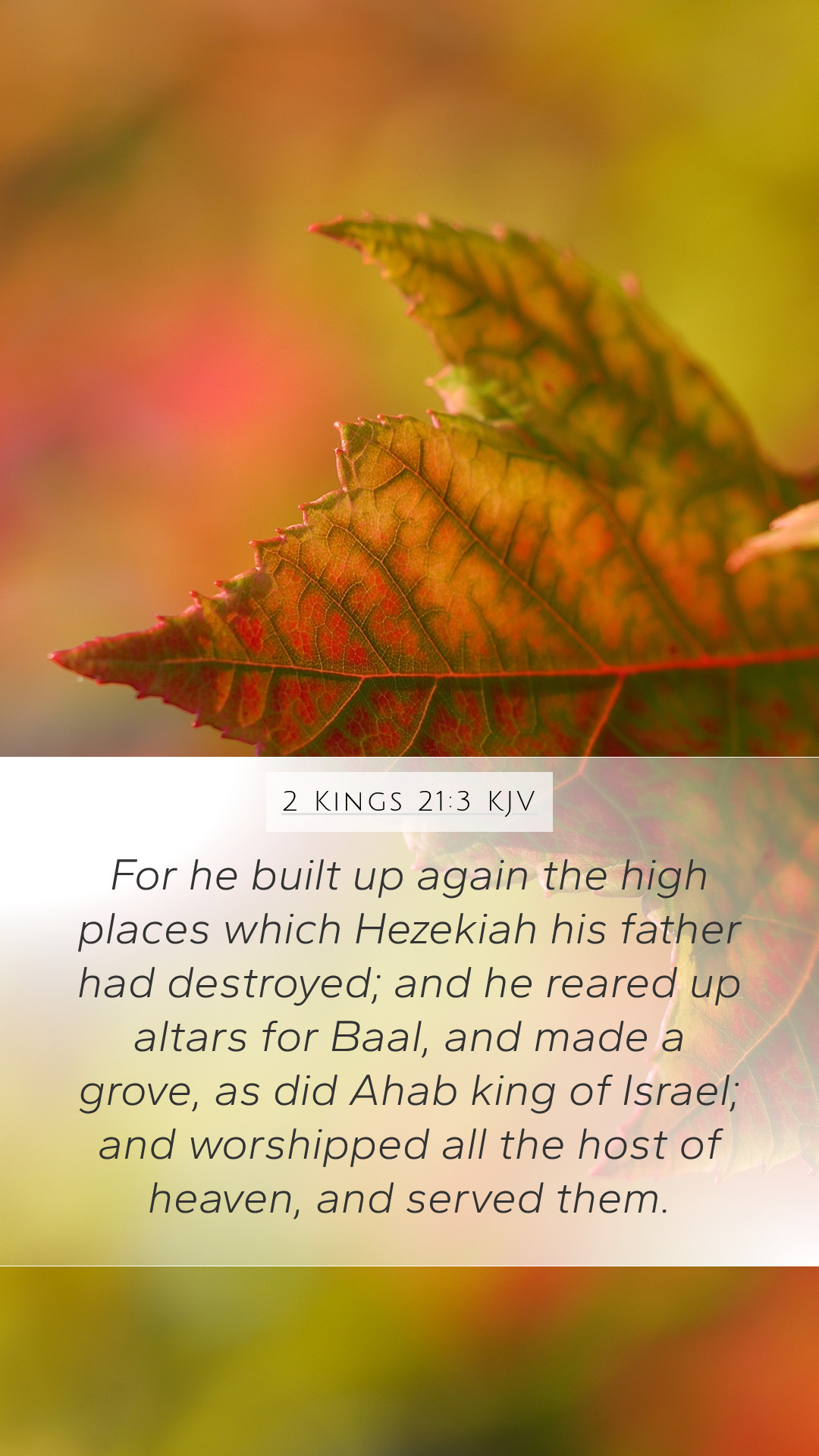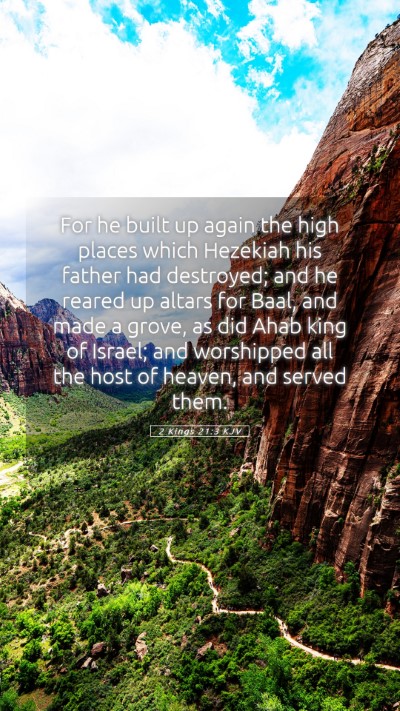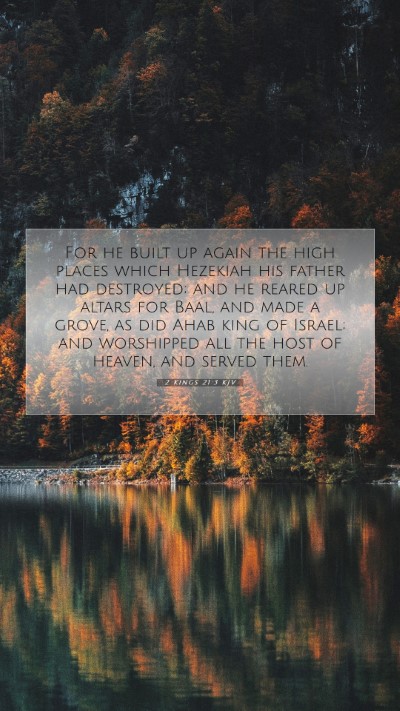Bible Verse Interpretation: 2 Kings 21:3
This verse, 2 Kings 21:3, states: "For he rebuilt the high places which Hezekiah his father had destroyed; and he reared up altars for Baal, and made a grove, as did Ahab king of Israel; and worshipped all the host of heaven, and served them." This passage symbolizes a significant turning away from the righteous path established by King Hezekiah, illustrating the pivotal role of leadership in spiritual matters.
Meaning of the Verse
2 Kings 21:3 serves as a critical analysis of King Manasseh's reign over Judah, depicting a stark contrast with his father's devotion to God. The verse details his actions of rebuilding pagan altars and engaging in idol worship, practices that brought about widespread corruption and idolatry among God's people.
Historical Context
Understanding this verse requires an exploration of the historical setting of Israel and Judah during Manasseh's reign. After Hezekiah's religious reforms, Judah experienced a brief return to faithfulness. However, Manasseh’s reign marked a severe regression as he adopted the sinful practices of his predecessors.
Commentary Insights
- Matthew Henry: Henry emphasizes the gravity of Manasseh's actions, viewing them as a direct affront to God. His restoration of idol worship signified a rejection of God's covenant and invite God's judgment.
- Albert Barnes: Barnes focuses on the consequences of leading a nation into idolatry. He notes that Manasseh's actions could lead the people further away from true worship and understanding of God's nature.
- Adam Clarke: Clarke provides insight into the terminology used within the verse, particularly the reference to 'the host of heaven,' which he explains relates to the astronomical bodies worshipped in ancient pagan rites. This highlights the extent of Manasseh's deviation from monotheism.
Spiritual Lessons Learned
The actions of King Manasseh serve as a warning for future generations. The verse illustrates how non-adherence to divine guidance can lead to spiritual decay and societal upheaval.
Key Spiritual Takeaways:
- The importance of discerning true worship and keeping faith alive amidst cultural pressures.
- Understanding that leadership profoundly influences a community's spiritual trajectory.
- The grave consequences of turning away from God and embracing worldly practices.
Application of the Verse
In our contemporary context, this verse challenges believers to reflect on their spiritual commitments and the influences they allow in their lives. How to interpret Bible verses related to idolatry is crucial in examining personal and communal faith practices.
Related Bible Verses
- 2 Kings 21:1-2 – Details about Manasseh's ascension and the evil he practiced.
- 2 Chronicles 33:1-9 – A parallel account highlighting Manasseh's idolatry and eventual repentance.
- Deuteronomy 6:13-15 – God's command not to worship other gods, reinforcing the covenant relationship.
- Isaiah 1:4 – A call against a nation that has turned away from God.
- Romans 1:21-23 – New Testament reflection on the consequences of abandoning God’s truth.
Conclusion
The study of 2 Kings 21:3 showcases how ancient narratives still resonate through time, providing insights into Bible study insights and prompting modern believers to reflect on their faith commitments. Understanding such scriptures can enrich Bible study groups and aid in personal spiritual growth.


